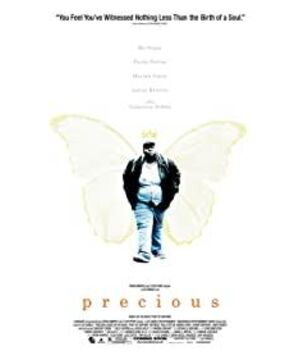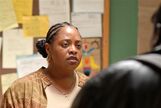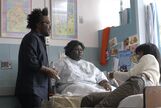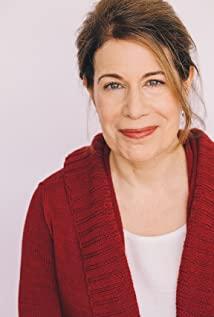"Precious Life" is not strictly a Hollywood product. It was originally just a low-cost independent film. After winning the award at the Sundance Film Festival last year, it became very popular and has been recognized by mainstream American cultural celebrities such as Oprah. , which was nominated for six more Oscars this year. These honors imply that although the film is not mainstream in subject matter, it is somewhat in line with a mainstream cultural psychology: people do not really long for pain, but like the hope behind the pain and the comfort that hope brings.
"Treasure Your Life" can almost be seen as a problem film that reflects the tragedy of America's lower-class families. The protagonist of the film, Precious, is an African-American black living in Harlem, New York. She suffers from obesity and a severe inferiority complex. She was raped by her biological father when she was still in middle school at the age of 16. She has two children, and the school has ordered her out of school; she has a mother who "sits on the couch like a whale", watches TV all day, and lives on welfare. Jane was also regularly abused by her own mother, sometimes verbally humiliated, sometimes with outright physical violence. In the special education school (Each One Teach One), Jane met Miss Yu, the teacher who brought her hope, and a group of classmates who made her feel warm even though they were all problem girls. When she gradually regained her confidence and found hope When I was told that I had AIDS...
The film touches on all aspects of American social issues: domestic violence, racism, child abuse, poverty, youth education, AIDS, single mothers, incest, out-of-wedlock parenting, social welfare issues, and more. Still, the bitterness of the film is not hopeless, as this bitterness is somewhat neutralized by the actors' performances and some of the film's visual elements. Actress Gabriel Sitibe, who plays Jane, is acting in this movie entirely by her personality and temperament, with very little acting. Jane in the movie is fat as a disaster, an image completely overwhelmed by low self-esteem and domestic violence. Whether facing her mother at home or in front of strangers, she shows a numb and ignorant look, like a head. Uncivilized beast. But the film's narration gave the character a voice from the start: her inner monologue. In addition to the ordinary and boring daily life pictures, the audience gradually began to feel the normal inner desire of this character, timid, naive, but eager. These monologues greatly changed Jane's image in the picture, bringing a warm warmth to the original bitterness. Not only that, but the director also presented the audience with images of Jane's fantasies: for example, when Jane was raped, the audience saw her as a pop star on a brightly lit stage; when she was dressing in the mirror , the audience saw in the mirror what she imagined herself to look like: a beauty who conformed to popular aesthetic standards; the same stage image reappeared when she was told that she might be infected with AIDS. In this way, the director reverses the way people feel pain in their lives, replacing shocking reality with exaggerated irony. In addition, the occasional humor, lively editing, and many aesthetic compositions in the film have changed people's simple sense of reality itself.
From the plot setting, the movie also implements the intention of finding hope from despair. Jane's transformation started when she met teacher Miss Yu at the special education school. A charismatic teacher leading a group of mischievous, ignorant kids to find the meaning of life is a common Hollywood redemption, exemplified by "Spring in the Cattle Class" and "Dead Poets Society." About Miss Rain, Jane in the film describes her directly: "Some people used to live in a tunnel where their only light was the light within themselves, and long after they escaped that tunnel, they Still illuminating others around you." This sentence can be seen as the film's final solution to all those misfortunes and sufferings: Never give up hope at any time, people will always shine at some point. Some people choose to accept this straightforward comfort, while others choose to reject it. One of the film's failures, however, is to make this consolation very didactic. The role of Miss Rain, and the way she brings confidence and hope to Jane and the other children, lacks the heart-pounding feel of the two aforementioned films. Her last weapon is the "love is the answer to all questions" that Woody Allen has been mocking. When Jane was diagnosed with AIDS and couldn't write a word in class, she accused "Love" like this: "Love has never done anything for me, love has crushed me, love has raped me, Makes me feel worthless." Compared with such accusations, Miss Yu's words "your child will love you" are pale and weak.
Another very important character in the film is Jane's mother, Mary. This black woman who was completely overwhelmed by life, living off social security funds and abusing her daughter was one of the culprits behind all of Jane's suffering. Actor Monica's virtuosity gives the character considerable psychological depth, and audiences are almost instinctively disgusted by her. But as a hopeful and comforting film that is embraced by mainstream audiences, "Pursue Your Life" doesn't set out to portray a completely evil person; it also deliberately avoids another source of evil—Jane's father never Appears positively in the movie. It attempts to tell people that all evil has a reason, and finding the reason can cure it. So at the end of the movie, Mary "confesses" her sins in front of Jane and a social worker (Mariah Carey): her meanness and abuse towards Jane are all because Jane took her man. I think this is the "supplement" of the movie to this character, but I can't judge whether this "supplement" alleviates or deepens the evil in this character.
View more about Precious reviews










